The Year In Malayalam Cinema: Moments That Moved, Thrilled & Surprised Us
From the best wail and consistent accent to ridiculous plot points, we have 2024's Malayalam cinema sorted for you in a funny, entertaining package.
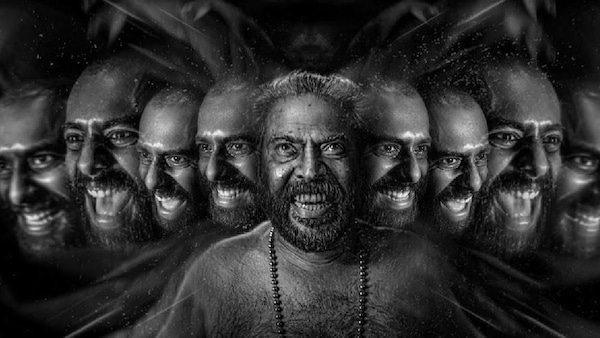
Last Updated: 05.09 PM, Dec 16, 2024
Editor's Note: This year, Malayalam cinema showcased a remarkable blend of storytelling, nuanced performances, and striking visuals. From standout performances to inventive plot twists, each film carved its own place. This list takes a closer look at the year's defining moments, both the standout highlights and the cringe-worthy missteps.
*
Most convincing accent:
First up would be Mammootty’s remarkable linguistic range and mastery while portraying the ageing patriarch/Goblin Koduman Potti in Bramayugam. In this creature horror set in 18th-century Kerala, Potti is depicted as a feudal patriarch who resides in a dilapidated bungalow with a cook. There is an air of mystery around this man, which is sharpened as the narrative evolves. His command over the chaste, symbolism-laden Malayalam laced in Valluvanadan slang intoned in his signature baritone is a masterclass in dialectal precision. Second would be Fahadh’s flawless rendition of Kannada slang as Ranga in Aavesham, perfectly capturing the nuances of the dialect, including the way a Kannadiga might wrestle with his Malayalam. That he maintains consistency even during the most emotionally charged sequences speaks for his ability to immerse himself in the character’s world.
Best on-screen cry:
For most of the film, Aavesham’s Ranga is a flamboyant mobster, presenting a charming façade to the world. However, the façade soon crumbles when he realises that he has been taken for a ride by the boys. And his outpouring is raw and emotional as he oscillates between anger, tears, and vulnerability. It’s heartbreaking to witness that moment when his true self is borne. Fahadh Faasil is pitch-perfect as he gets down to the business of absorbing the complexity of Ranga.
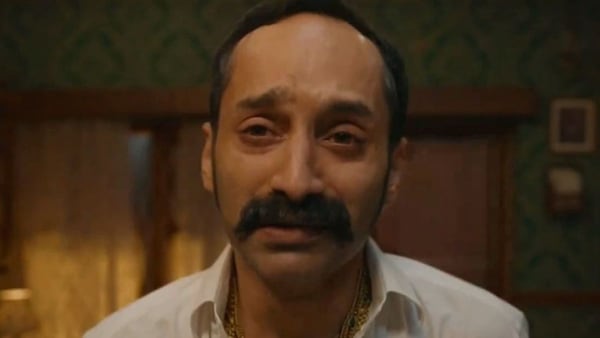
Most eerie villainous laugh:
Despite his advanced age, Bramyugam's Koduman Potti, exudes an aura of power and menace, which is cleverly conveyed through his deliberate movements and mannerisms. As he navigates his sprawling, dilapidated, with the aid of a walking stick, he signifies controlled satanic aggression. There are hints of a “caged beast” lurking behind that paan-stained toothy grin and generosity. It is through Thevan’s (Arjun Asokan) lens that we are sizing up Potti, encompassing both his magnanimity and brutality. Mammootty’s portrayal is nothing short of towering, as he brings a sense of depth and fear to this Goblin. His distinctive voice tonality and guttural laugh especially add to the character’s mystique and horror.
Best non-romantic chemistry:
In Premalu, Amal Davis’s (Sangeeth Prathap) entry into Sachin’s (Naslen Gafoor) rather confused existence is a pivotal moment, signalling the start of a transformative relationship. He is still at odds with his career and life, while Amal has it all figured out. Gradually before he even realises it Amal had turned into Sachin’s emotional crutch, dispelling his gloom, and imbuing him with a renewed sense of optimism. From there on, Amal proves to be a reliable companion and even helps Sachin navigate his romance with Reenu. Ironically their bonding is so palpable that it even eclipses his romance with Reenu (Mamita Baiju). In a way the Amal-Sachin friendship makes us reexamine our assumptions about relationships and human connection.
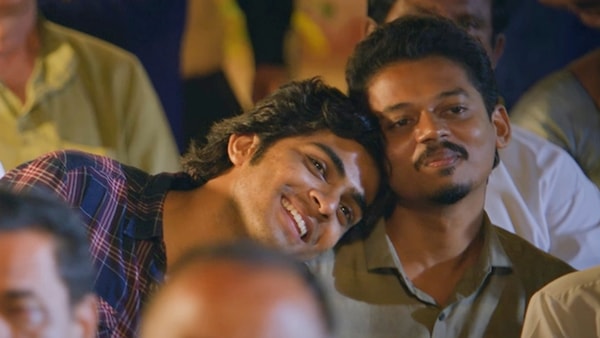
Most interesting creative plot twist:
Sookshmadarshini cleverly subverts our expectations, as it initially unfolds as a warm, cosy feel-good drama. There is a close-knit neighbourhood, where everyone knows their way around. Priyadarshini (Nazriya) is a homemaker with the instincts of a sleuth which sharpens when a new family shifts to her neighbourhood. As Priyadarshini grows more suspicious of Manuel’s (Basil Joseph) sinister motives, we are also skilfully drawn into her line of thinking. However, all that while the clever screenplay expertly lays the groundwork for a stunning plot twist that catches us off guard. Some of the red herrings are so expertly woven into the story that it makes them virtually undetectable on the first viewing.
A superb depiction of a social issue:
Don Palathara’s Family depicts the horrors of child abuse, with subtlety. By weaving religion and abuse, he throws light on how perpetrators often hide behind the mask of respectability and moral authority. What’s particularly unsettling is how Palathara places his predator (Vinay Fort), lending him the safe garb of a benevolent teacher who gains the trust of his young victims. He lets him roam freely within the supposed safe confines of their homes, and the fact that these heinous crimes occur under the watchful eye of their family, adds to the sense of despair and horror. What’s truly heartbreaking to watch are their muted reactions, vacant expressions, and the eerie silence that pervades.
The films that passed the Bechdel test:
Sure, Ullozhukku had two strong female characters, and they do have a lot of intense conversations between themselves. However, the test is invalidated because the conversations are mostly around the men in their lives.
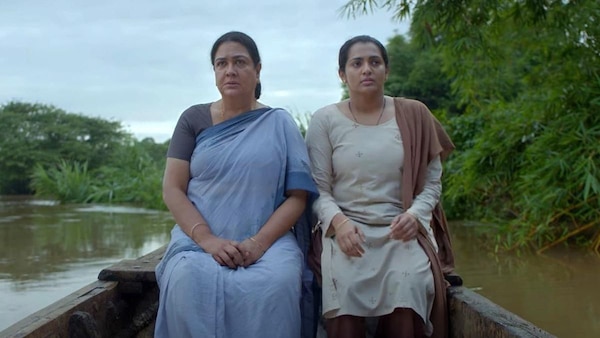
Most cringe-worthy moment:
Though Vineeth Sreenivasan’s Varshangalkku Shesham is marred by several cringe-worthy moments, apart from the obvious sight of Pranav Mohanlal and Dhyan Sreenivasan’s awkward ageing exterior and performance, it is the mishandled romantic subplot between Pranav and Kalyani that eventually takes the cake. Not only are their interactions contrived and unconvincing but Kalyani’s abusive relationship with her brother-in-law is perplexing and problematic. Worse, the writing refuses to take a clear stance on the issue, thereby normalising the abuse. And this oversight is further impaired by Pranav who looks out-of-sorts and unnecessarily angry but walks out without even addressing the issue. Their romantic bits were of course embarrassing, to put it mildly.
Best over-the-top-performance:
Initially, the trailers of Guruvayoor Ambalanadayil hardly inspired confidence with Prithviraj’s loud antics threatening to overwhelm the film. However, the actual movie turned out to be a different beast as Prithviraj’s boisterous Anand Ettan who dunks his soon-to-be brother-in-law with crushing love turned out to be a masterstroke. Prithvi’s loud physical comedy and unrestrained energy were essential for the gags to work. And Basil and Prithvi played off each other’s spontaneity, making sure their combo was the biggest draw of the film. In hindsight, his performance was tailored to embrace the film's absurdity, and it paid off.
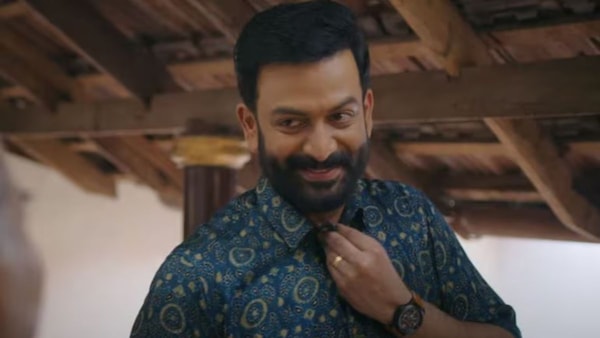
The characterisation conundrum:
Ayyaanar, a pivotal character in Lijo Jose Pellisery’s Malaikottai Valiban works fine as long as he indulges the protagonist’s antics. Till the crucial reveal, he is a silent presence but once the mask falls off, the character devolves into theatrics, reducing Ayyaanar into a caricature. Hareesh Peradi’s signature voice tonality and staid expressions which have become repetitive, and one-note clashes disastrously with Mohanlal’s understated act. This disparity is particularly evident in the pivotal scene when Ayyaanar has an emotional breakdown, where he assures Valiban of his loyalty or his dramatic narration of his past. Peradi’s over-the-top delivery dilutes the emotional heft of these scenes, thereby weakening the profundity of Ayyaanar.
The most ridiculous plot convenience:
Though Malayalee from India aspires to tackle the pressing issue of polarisation and communal unrest in India, their source material can only serve simplistic, social media activism. It doesn’t help that the narrative relies on a series of ridiculous plot conveniences that end up denting its potential depth. The film’s meandering narrative which begins at a village in Kerala and later shifts to the barren landscape of Arabia is designed to showcase the protagonist’s coming-of-age arc. However, the journey is marred by farcical passages of empowerment, thereby reducing the film into an embarrassing ode to Kerala tourism. Also, unconvincing and contrived was the protagonist’s transformation from a right-wing sympathiser to a free-thinking individual. The shift seemed unearned and pretentious.
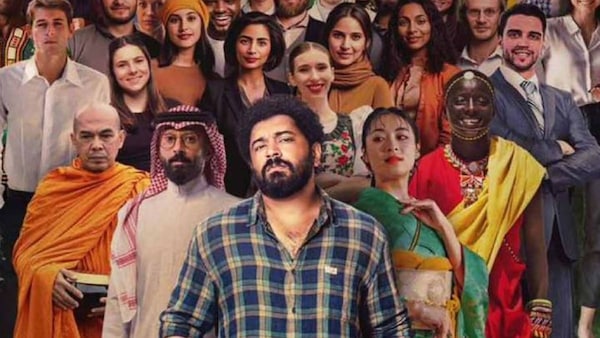
When the narrative deserved a better soundtrack:
Vysakh’s Turbo had all the elements required for an action thriller: a local hero who loved his punches, a mean antagonist, plot twists and high-octane car chases. However, musician Christo Xavier failed to amplify the adrenaline-fueled experience, with a soundscape that was a confused cacophony of blares and commotions. The original soundtrack had more than a dozen tracks tailored for every situation and character, but the high-octane ones don’t leave a lasting impact. This is despite the composer having enlisted the services of an orchestra from Budapest incorporating banjo, mandolin, cello, viola, contrabass, and violin for extra effect. Having said that the quieter, melodious ones hit the right notes (Indulekha, Chennai) hinting at his versatility. A more nuanced soundtrack would have changed the game for Turbo.
Quirkiest promotional poster:
One look at the monochrome poster of a venerable Mammootty sitting on an antique chair resplendent in a mundu and a beaded necklace with a sly grin and pan-stained teeth was the perfect harbinger to lure us into the world of Bramayugam. All the posters of Bramayugam designed by Aesthetic Kunjamma squealed with anticipation and intrigue, including the one showcasing a desolate Kerala Tharavadu, Mammootty in a folkish headgear and satanic makeup, Sidharth Bharathan holding a fire torch, Mammootty’s Potti gazing into Yakshi’s eyes or a poster that had a solitary walking stick. Each poster was a visual treat, replete with eccentric aesthetics and symbolism. And remarkably all the posters eventually lived up to the expectations they created.

Best movie quote/dialogue:
Among a lot of other factors, Bramayugam’s thematically heavy dialogues are a masterclass in storytelling. Flawlessly intoned in Mammootty’s deep baritone, they convey the right blend of gravitas and emotional depth, elevating the narrative to unprecedented heights. The one-liners from Mammootty’s Potti are especially existentially profound, adding to his mystery and horror. Take for instance Potti’s introductory welcome to Thevan (“Ente Manayilekku Swagatham”)—a simple, but ominous line that sets the tone for the rest of the film, hinting at the horror that lies within. Similarly, Potty’s enigmatic hints about being in his confinement during the game of dice add to the sense of intrigue. However, during the interval scene, we witness the true brilliance of its dialogues. As an exhausted and defeated Thevan returns to the mansion and falls at Potti’s feet, he finally unveils himself with a simple, yet chilling line. Not only does it underscore Thevan’s confinement but also marks a turning point in Bramayugam. Simple but powerful!
